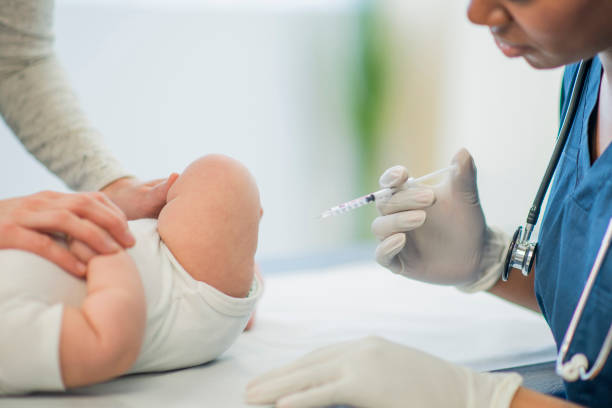Patients in England with advanced skin melanoma are receiving a “revolutionary” new therapeutic cancer vaccine in a National Health Service (NHS) clinical trial that is being used to fast-track the biological to licensure. The vaccine, iSCIB1+—also known as ImmunoBody—is a DNA-based treatment designed to boost the immune system’s ability to target and remember melanoma cells.1
Unlike vaccines that are designed to prevent disease, iSCIB1+ is administered to patients already diagnosed with cancer of the skin. Developed by United Kingdom-based company Scancell plc, the experimental biological encodes a human antibody that trains the immune system to recognize and destroy melanoma cells—and potentially prevent the skin cancer from returning. According to preliminary results from the manufacturer, the treatment can enhance patients’ responses to immunotherapy.
Needle-Free Delivery Technology for Melanoma Cancer Vaccine
Trials are being conducted using a needle-free delivery device to inject the vaccine into the skin. The injection system uses a narrow stream of fluid, rather than a needle, to penetrate the skin with a precise dose and depth. This needle- free system is manufactured by PharmaJet, Inc. of Golden, Colorado. The company believes that “needle free is the future of how injectables will be delivered.”2
The trial is part of the NHS’s Cancer Vaccine Launch Pad (CVLP), a national fast-track initiative aimed at accelerating access to personalized vaccines. Many of the therapeutic biologicals developed under the CVLP utilize mRNA technology. The CVLP platform features a “match-making” service to match eligible patients to suitable clinical trials at local participating hospitals. The initiative has already injected thousands of patients with therapeutic bowel cancer vaccines and has the goal of providing experimental “personalized cancer treatments” to up to 10,000 patients in England by 2030.3
NHS Utilizes Personal Data from Hospitals to Seek out Eligible Patients
Patients are identified and “recruited” by the NHS by first collecting patients’ personal information from participating hospitals “as part of routine care”. Consultants or cancer specialists then identify the patients who may be eligible for the therapeutic cancer vaccines and connect them with a research nurse who provides additional information. According to the NHS website, personal data that is used to recruit clinical trial participants includes patient personal data and contact details, patient clinical records, and patient blood and tissue samples.4
“We want to ensure as many eligible NHS patients as possible have access to these vital trials,” said NHS National Cancer Director Peter Johnson. “That’s why we are working with a range of industry partners as more studies get underway—to ensure patients are fast-tracked to a vaccine that could transform lives.”3
U.K. Government Hails Cutting of Red Tape for Fast Tracked Medical Research
In the fall of 2024, the NHS also launched the world’s first trial for a preventive vaccine to prevent ovarian cancer.5 OvarianVax will teach the immune system to recognize and attack the earliest stages of ovarian cancer.6
British Prime Minister Keir Starmer hailed the NHS’s cancer vaccine initiative as a model for medical innovation. “This kind of innovation is nothing short of life-saving,” he said. “That’s why, through our plan for change, we’ve taken steps to fast-track clinical trials and cut red tape—so Britain becomes the best place in the world for medical research.”3
If you would like to receive an e-mail notice of the most recent articles published in The Vaccine Reaction each week, click here.
Click here to view References:1 Kirby J. NHS to launch skin cancer vaccine test in new treatment drive. Independent Apr. 14, 2025.
2 PharmaJet. Needle-free makes injections better. Retrieved Apr. 19, 2025.
3 Thomas T. Melanoma patients in England get fast-track access to cancer vaccine. The Guardian Apr. 14, 2025.
4 NHS England. Cancer vaccine launch pad. Apr. 21, 2025.
5 Oxford Centre for Cancer Early Detection and Prevention. Funding to create world’s first ovarian cancer prevention vaccine. Oct. 4, 2024.
6 Oxford News. Oxford researchers secure funding for world’s first ovarian cancer prevention vaccine. Oct. 4, 2024.













7 Responses
Another warp speed death shot with no long term viability.
Do you know about Dr. Patrick Soon-Shiong, Executive Chairman and Global Chief Scientific and Medical Officer at ImmunityBio?
There they go again, trying to inject health.
Exactly, Colorado. The twisted belief that health is delivered via a concoction of chemicals injected into the bloodstream. This is where pharma is headed now–customized vaccines for individuals allegedly designed just for that person. This is supposedly to counter the complaints that a one-size fits all vaccine is harmful to some but it ignores the fact that all vaccines are harmful to all people. These “custom” vaccines will be just as injurious as the old school junk.
Can a cancer cell mutate like a flu virus can? If so, it will never work. Also, again like with other vaccines, you’ll destroy a human’s innate immunity.
Just another “big pharma” vaccine! Many, many people are having great results curing and preventing cancer…even stage 4 cancer in the USA with alternative methods. Number one is an anti- parasite protocol…that is relatively cheap! But with all this desire to make tons of money… the Drs and all involved in the cancer industry…will do everything they can to disclaim, discredit, and destroy any of these life saving alternatives. They will desperately try to find a way to raise prices and take this over somehow! Please research and spread this cheap protocol that works in spite of vaccines!
Awful. Fast tracking any vaccine is the wrong thing to do. There is a reason that there are clinical trials. They fast tracked the Lymerix vaccine and it ended up giving people treatment resistant lyme and ruining people’s lives. Then they quietly pulled it off the market citing “lack of sales”.
MrNA technology should be banned. It has already shown to cause heart problems and most likely, cancer.